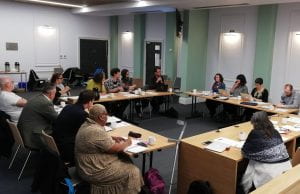by Professor Paula Giliker, University of Bristol Law School
The common law doctrine of vicarious liability in tort is both controversial and on the move. In the last 20 years, this doctrine – which holds one party (usually an employer) strictly liable for the torts of an employee that take place in the course of their employment – has given rise to significant decisions in the apex courts of common law jurisdictions across the world. There has been an unprecedented level of cross-citation between common law jurisdictions, not only of decisions of the UK Supreme Court and the Supreme Court of Canada (Bazley v Curry [1999]; Lister v Hesley Hall Ltd [2001]; Various Claimants v Catholic Child Welfare Society (CCWS) [2012]) but also of decisions from the Supreme Court of Ireland (Hickey v McGowan [2017]), the Singapore Court of Appeal (Skandinavska Enskilda Banken AB (Publ) v Asia Pacific Breweries (Singapore) Pte Ltd [2011]; Ng Huat Seng v Mohammad [2017]), the Court of Final Appeal of Hong Kong (Ming An Insurance Co (HK) Ltd v Ritz-Carlton Ltd [2002] and the New Zealand Court of Appeal (S v Attorney-General [2003]). It is an area therefore ripe for research but one in which this newly published book takes a distinct approach, arguing that to understand vicarious liability, we need to understand both the context in which these decisions are delivered and their underlying policy reasoning. (more…)


